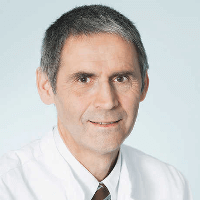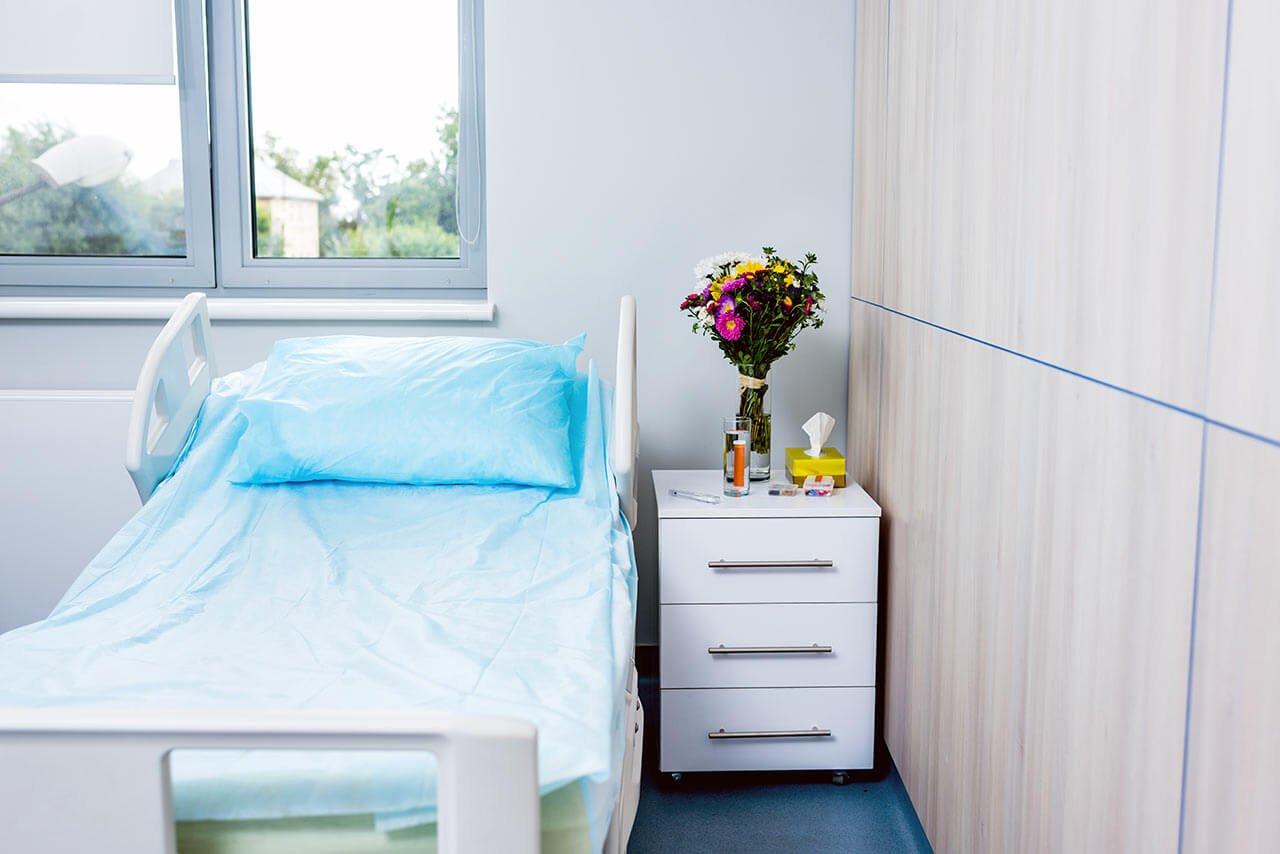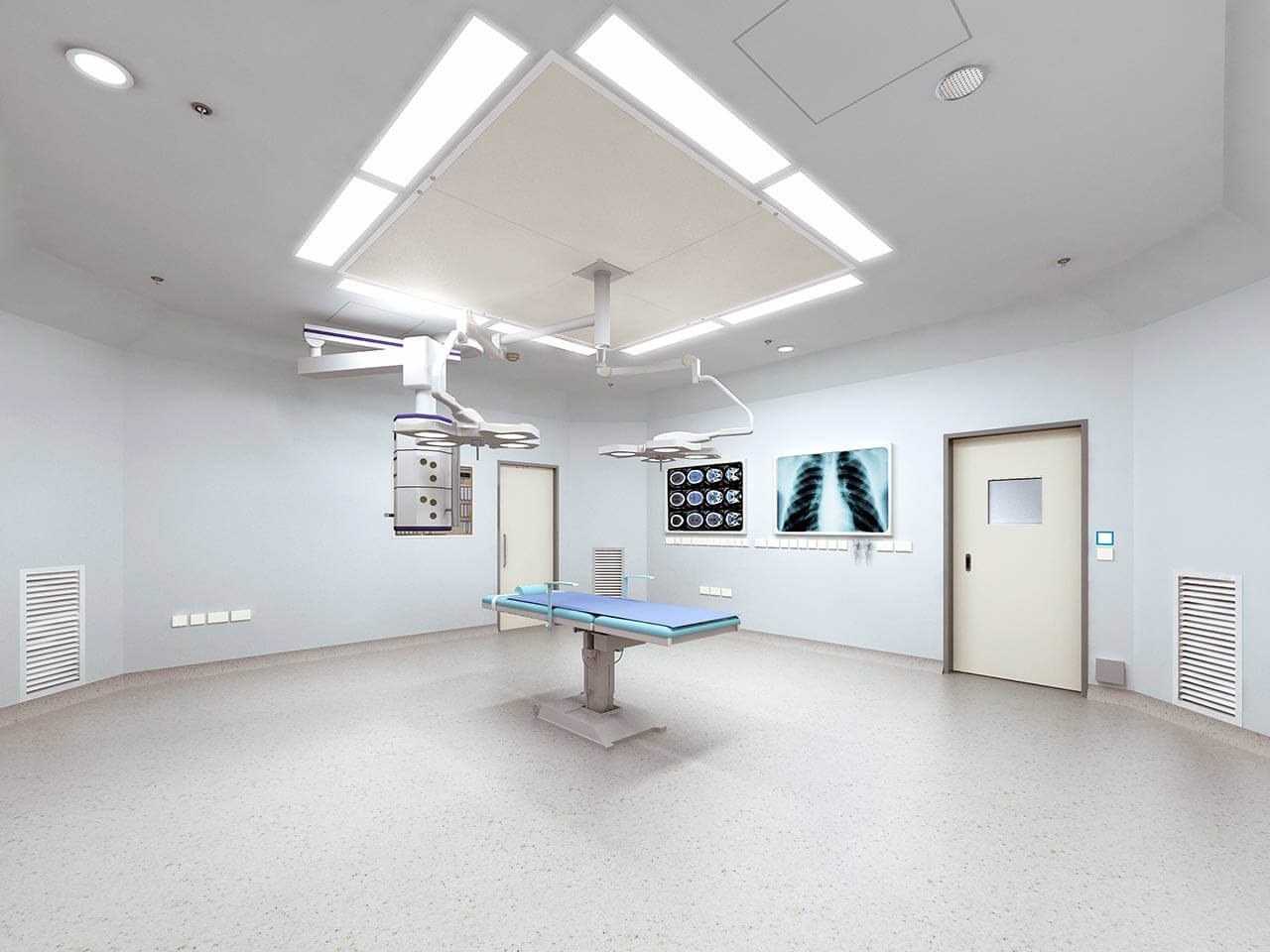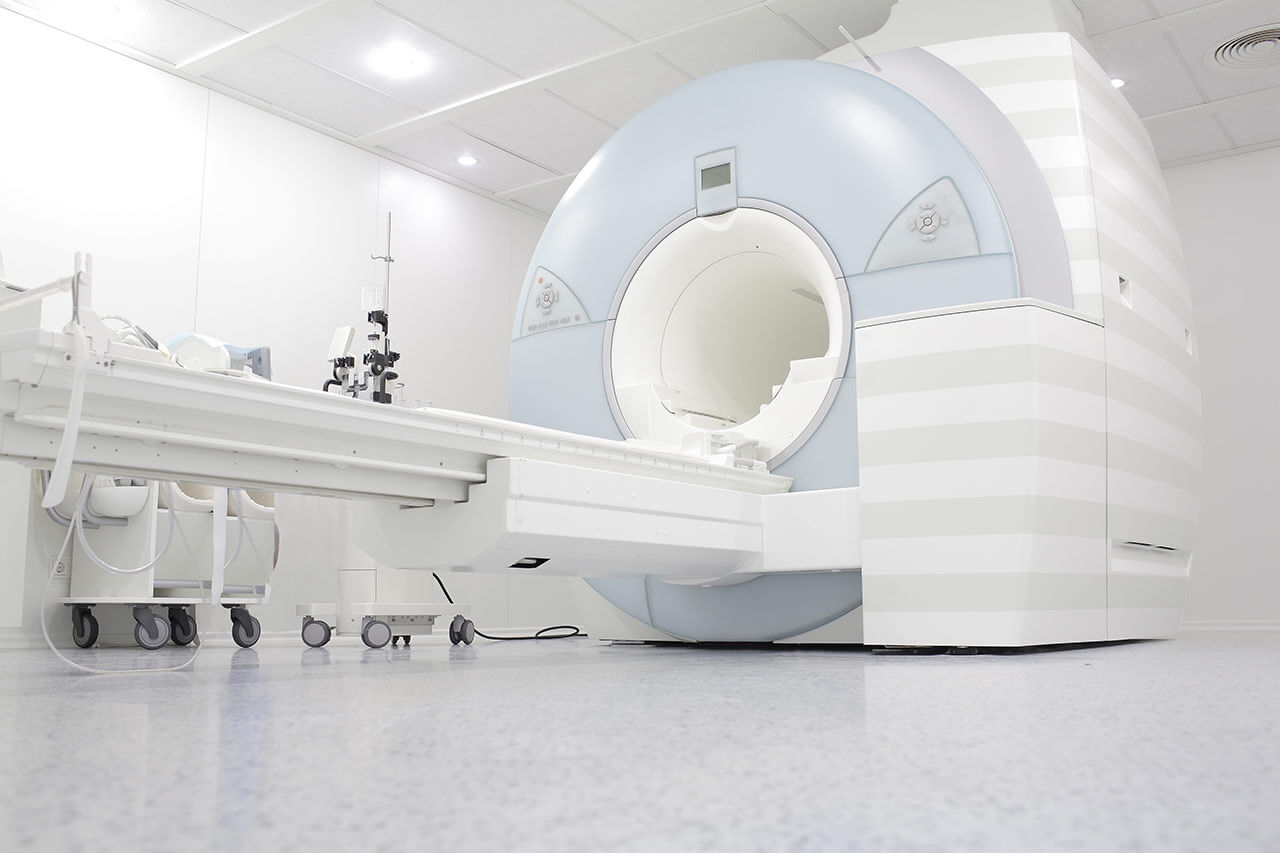
The program includes:
- Initial presentation in the clinic
- case history collection
- general clinical examination
- laboratory tests:
- complete blood count
- biochemical analysis of blood
- TSH-basal, fT3, fT4
- differential blood count
- inflammation indicators (CRP, ESR)
- indicators blood coagulation
- CT/MRI scanners of the complete organism
- needle biopsy of the bone marrow
- biopsy and histological examination of CSF
- examination by experts of:
- cardiology
- otolaryngology
- immunology
- ophthalmology
- one cycle of induction chemotherapy
- symptomatic treatment
- control examinations
- the cost of essential medicines and materials
- nursing services
- full hospital accommodation
- explanation of future recommendations
Required documents
- Medical records
- MRI/CT scan (not older than 3 months)
- Bone marrow biopsy results (if available)
Service
You may also book:
 BookingHealth Price from:
BookingHealth Price from:
About the department
The Department of Hematology and Oncology at the Hospital Neuperlach Munich offers the full range of medical services for the diagnostics and treatment of solid malignant tumors and malignant blood diseases. The department is part of a large Cancer Center in southern Germany – Cancer Center Munich Süd. The department also offers services of the Colon Cancer Center certified by the German Cancer Society. The patients with this pathology receive effective treatment in the center. The department's doctors have in their arsenal many therapeutic methods, which help them to achieve a complete cure for cancer or long-term remission of the disease. The specialists of the medical facility prefer an interdisciplinary and individual approach to each patient, and also necessarily take into account the psychological aspect, since cancer has a huge impact on the patient's emotional state and often causes the development of depressive conditions. The department employs a highly competent medical team consisting of 15 specialized doctors and 30 nursing staff who work for the benefit of their patients. The department annually treats more than 4,000 patients both on an inpatient and outpatient basis. The department is headed by Prof. Dr. med. Meinolf Karthaus.
The treatment of oncological diseases is a rather complex clinical task and requires an interdisciplinary approach. Therefore, the department holds weekly tumor boards with the participation of oncologists, hematologists, surgeons, radiation therapists, chemotherapists, radiologists, as well as highly specialized experts (gastroenterologists, coloproctologists, gynecologists, etc.). The specialists jointly study the patient's anamnesis, his diagnostic data, assess his overall health status, and then decide on the advisability of surgical resection of a solid tumor, chemotherapy, radiation therapy and other types of treatment. The patients also have the opportunity to participate in clinical trials of innovative drugs and therapeutic procedures. It goes without saying that the participation in clinical trials is voluntary. In addition, the department offers patients with incurable cancers palliative care aimed at relieving pain and improving their quality of life.
The treatment of leukemia is of particular interest to the department's medical team. The most common blood cancers include acute myeloid leukemia, acute lymphoblastic leukemia, chronic myeloid leukemia and chronic lymphocytic leukemia. To confirm the diagnosis and determine the exact type of leukemia, the patient needs to undergo a complex of diagnostic tests, including blood tests, bone marrow biopsy, cerebrospinal fluid analysis, ultrasound, CT and MRI scanning. If the diagnostic results confirm the oncological process, the doctors will develop an optimal treatment regimen, taking into account specific clinical indications. The patients with leukemia are treated in strict accordance with the requirements of the World Health Organization (WHO) and the German Society of Hematology and Oncology. The basis of the treatment regimen is chemotherapy, which in most cases is administered by infusion. Some patients, especially those with acute lymphoblastic leukemia, additionally undergo radiation therapy. In case of chronic leukemias, the first-line treatment is targeted therapy, for example, therapy with tyrosine kinase inhibitors. If the pathology continues to progress, the patient will also undergo chemotherapy. The last-line treatment for both acute and chronic leukemias is bone marrow transplantation. Autologous and allogeneic bone marrow transplants are performed in collaboration with colleagues from the Hospital Schwabing Munich and, if required, form the university hospitals in Munich.
One of the most common types of cancer in women is breast cancer. The department has excellent diagnostic capabilities for a comprehensive assessment of the condition of the breast. During the initial examination, the mammologist conducts breast palpation followed by mammography. Mammography can be supplemented with high-resolution ultrasound scanning. If doctors detect pathological neoplasms in the breast, they will appoint a biopsy for a woman. At an interdisciplinary tumor board with the participation of mammologists, gynecologists, oncologists and radiologists, the specialists study the obtained diagnostic data and elaborate the most effective treatment regimen based on the current clinical protocols and requirements of the German Cancer Society. In most cases, a woman with breast cancer requires surgical resection of the tumor and sometimes a total mastectomy (total removal of the breast). The total mastectomy is followed by reconstructive plastic surgery aimed at restoring the aesthetic appearance of the breast. Typically, surgery is complemented by chemotherapy and radiation therapy. In addition, the department successfully uses such innovative treatments as hormone therapy and antibody therapy. Throughout the therapeutic process, experienced psychologists work with the patients to help them cope with emotional distress and difficulties on their way to recovery.
The treatment of uterine, cervical, ovarian, vaginal and vulvar cancers is also within the competence of the department's doctors. The first-line therapy for these cancers in women is surgical resection of the malignancy, which is performed using minimally invasive techniques whenever possible. A woman also often has to undergo chemotherapy and/or radiation therapy to completely destroy cancer cells. In some cases, antihormone therapy can be used.
An equally important focus of work of the department's oncologists is the treatment of colon cancer. The department is proud of its outstanding achievements in this area and the certificate of the German Cancer Society. Today, colon cancer is one of the most common and dangerous types of oncology. The pathology is difficult to detect in the early stages, which leads to a poor prognosis of treatment. However, the specialists of the medical facility have a wealth of experience in the treatment of colon cancer and manage to achieve a successful treatment outcome in the fight against it. During the treatment, not only oncologists work with the patient, but also surgeons, gastroenterologists, coloproctologists, radiologists and other doctors who jointly decide on a particular type of therapy.
The department specializes in the diagnostics and treatment of the following diseases:
- Lymphomas
- Leukemias
- Acute myeloid leukemia
- Acute lymphocytic leukemia
- Chronic myeloid leukemia
- Chronic lymphocytic leukemia
- Breast cancer
- Uterine cancer
- Cervical cancer
- Ovarian cancer
- Vulvar cancer
- Vaginal cancer
- Colon cancer
- Neuroendocrine tumors
- Gastrointestinal cancers
- Lung and pleural cancers
- Other diseases
The therapeutic options of the department include:
- Surgical resection of solid malignant tumors (in cooperation with specialists from the Department of Surgery)
- Chemotherapy
- Radiation therapy
- Hormone therapy
- Antibody therapy
- Immunotherapy
- Targeted therapy
- Palliative care
- Psychological support
- Other therapies
Curriculum vitae
Higher Education and Professional Career
- 1977 - 1983 Study of Medicine at the Westphalian Wilhelm University of Muenster.
- 1983 State examination and doctoral thesis defense in medicine.
- 1989 Additional specialization in Sports Medicine, Medical Association of Westphalia-Lippe.
- 1990 Qualifying examination in Internal Medicine, Medical Association of Westphalia-Lippe.
- 1993 Specialization in Gastroenterology, Medical Association of Koblenz.
- 1997 Specialization in Hematology and Oncology, Medical Association of Lower Saxony.
- 1999 Habilitation in Internal Medicine, Hannover Medical School.
- 2000 Head of the Department of Palliative Care, Evangelical Hospital Bielefeld.
- 2001 Chief Physician of the Department of Oncology and Palliative Therapy, Bielefeld Evangelical Hospital.
- 2003 Extraordinary Professor, Hannover Medical School.
- 2005 Additional specialization in Infectology, Medical Association of Westphalia-Lippe.
- 2006 Additional specialization in Palliative Care.
- Since 01.09.2007 Chief Physician of the Department of Hematology and Oncology at the Hospital Neuperlach Munich.
- Since 01.10.2008 Chief Physician of the Cancer Center Munich-Süd, Hospital Neuperlach Munich and Hospital Harlaching Munich.
Publications
- More than 100 publications in international journals and monographs.
- Over 100 published theses, planning and managing scientific symposia.
- More than 100 reports at regional, national and international congresses.
- Participation in the development of guidelines for the diagnostics and treatment of infections in blood diseases.
- 2000 Editor of the monograph "Symptomatic therapy for cancer patients".
- 2001 Editor of the monograph "Fungal infections in cancer patients", 5th edition 2007.
Сlinical and Research Activities
- Performance of registration clinical trials for the FDA (>25).
- Palliative care for patients with advanced cancer.
- Expert on infectious diseases in national professional societies (Paul Ehrlich Society, German Society for Hematology and Medical Oncology).
- Epidemiology of infectious diseases in immunocompromised patients.
- Diagnostics and treatment of infectious diseases in immunocompromised patients.
- New therapy concepts for immunocompromised patients.
Memberships in Professional Societies
- American Society of Hematology (ASH).
- American Society of Clinical Oncology (ASCO).
- German Society for Hematology and Medical Oncology (DGHO).
- Paul Ehrlich Society (PEG).
- German Society for Infectious Diseases (DGI).
Photo of the doctor: (c) München Klinik Neuperlach
About hospital
The Hospital Neuperlach Munich provides modern medical services of the highest quality. The medical center is an Academic Hospital of the Ludwig Maximilian University of Munich, and therefore it can offer its patients innovative diagnostic and therapeutic methods available only in the best German hospitals. The medical complex opened its doors to patients on September 12, 1972 and to this day holds a leading position in the country's medical arena. The medical facility has 500 beds. The highly qualified doctors of the hospital annually admit over 59,000 patients for both diagnostics and treatment, including patients from foreign countries.
The hospital is distinguished by its rich experience and high success rates in conservative and surgical treatment of diseases of the gastrointestinal tract, liver, metabolic disorders, cancers and blood diseases, heart diseases, as well as vascular pathologies. The hospital operates a highly specialized Colon Cancer Center certified by the German Cancer Society. The center is one of the largest medical facilities of this kind in Germany and has advanced therapeutic options for the treatment of life-threatening colon disease. In addition, the hospital provides high-quality obstetric services – more than 1,000 babies are born here annually.
For outstanding achievements in various medical specialties, the hospital was awarded with many prestigious certificates, including the IQM certificate, the DIN EN ISO 9001:2008 certificate, the DGAV certificate as a Competence Center for Liver and Pancreatic Surgery, the DDG certificate of the German Diabetes Society and others. The above mentioned certificates testify to the excellent quality of medical service.
Special attention should be paid to the medical staff of the hospital who have extensive clinical experience and do everything possible to achieve a complete recovery of the patient. During the treatment, both doctors and nursing staff surround the patient with maximum care, support him in every possible way and show a humane attitude. The work of physicians is based on an individual approach to each patient and his clinical case.
Photo: (с) depositphotos
Accommodation in hospital
Patients rooms
The patients of the Hospital Neuperlach Munich live in single, double and triple rooms with all the amenities for a comfortable stay. The patient rooms have a modern and cozy design. Each patient room has an ensuite bathroom with shower and toilet. The furnishings of a standard patient room include an automatically adjustable bed, a bedside table, a wardrobe, a modern multimedia system with a TV and telephone, a table and chairs for receiving visitors. Wi-Fi is also available in the patient rooms.
The patients can also stay in the enhanced comfort patient rooms, which additionally include a safe, a minifridge and upholstered furniture.
The hospital also has a library with a large assortment of books, magazines, CDs and DVDs. In addition, there is a cozy cafe on the territory of the hospital, which offers its guests a variety of delicious snacks, pastries, cakes, ice cream and various drinks. The cafe also has a takeout service.
Meals and Menus
The patient and his accompanying person are offered tasty and healthy three meals a day. All dishes are cooked only from fresh and high quality ingredients. Breakfast and dinner are served buffet style, and the patient can choose the dishes that he likes on his own. For lunch the patient has a choice of three menus, one of which is vegetarian.
If you are on a specific diet for some reason, you will be offered an individual menu. Please inform the medical staff about your dietary preferences prior to the treatment.
Further details
Standard rooms include:
Religion
The religious services are available upon request.
Accompanying person
During the inpatient program, the accompanying person can live with the patient in a patient room or a hotel of his choice. Our managers will help you choose the most suitable option.
Hotel
During the outpatient program, the patient can stay at the hotel of his choice. Our managers will help you choose the most suitable option.





